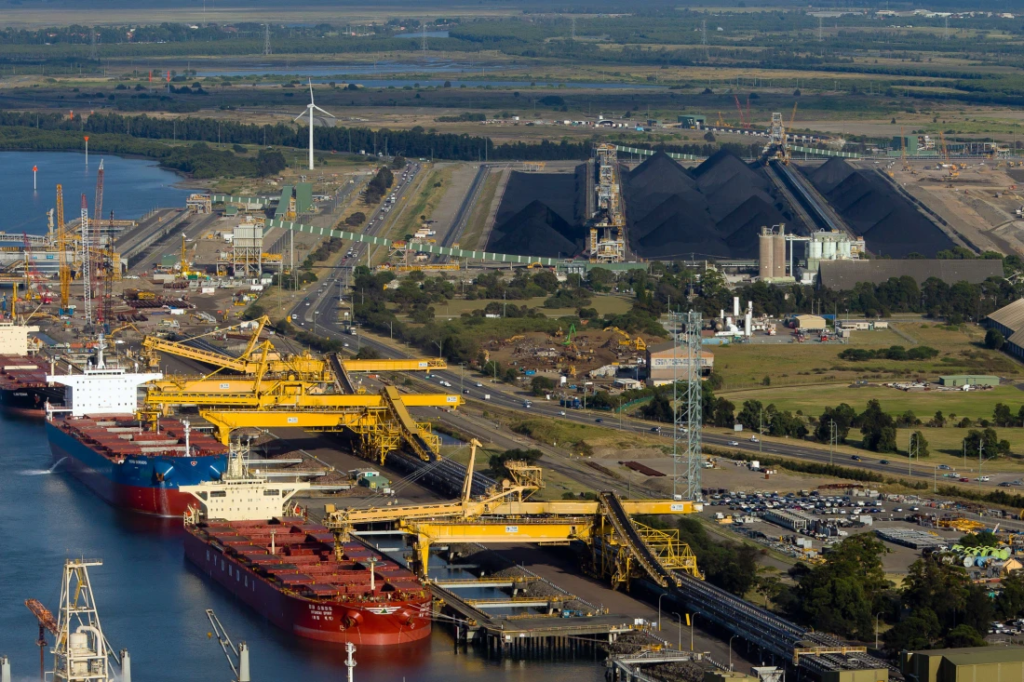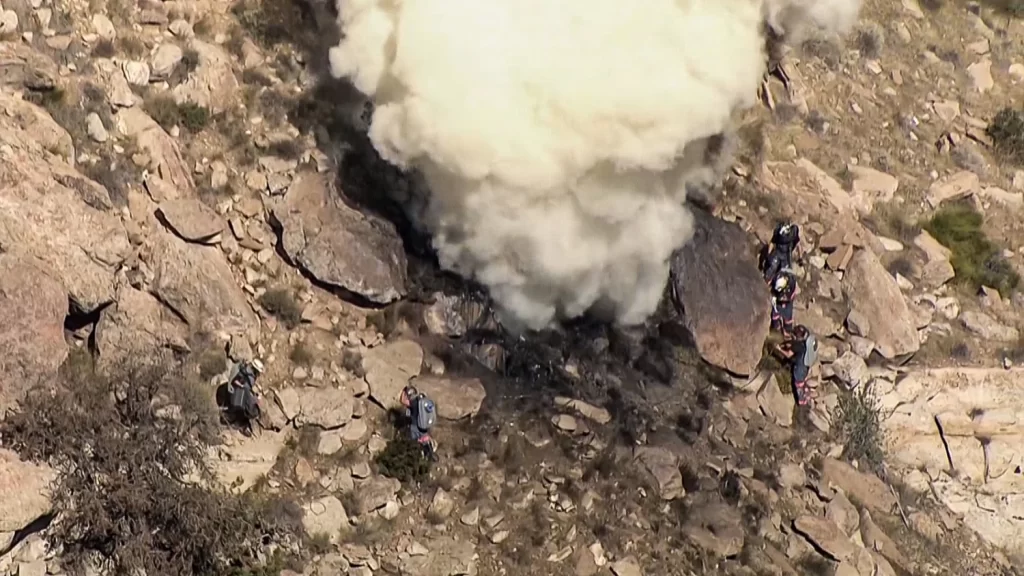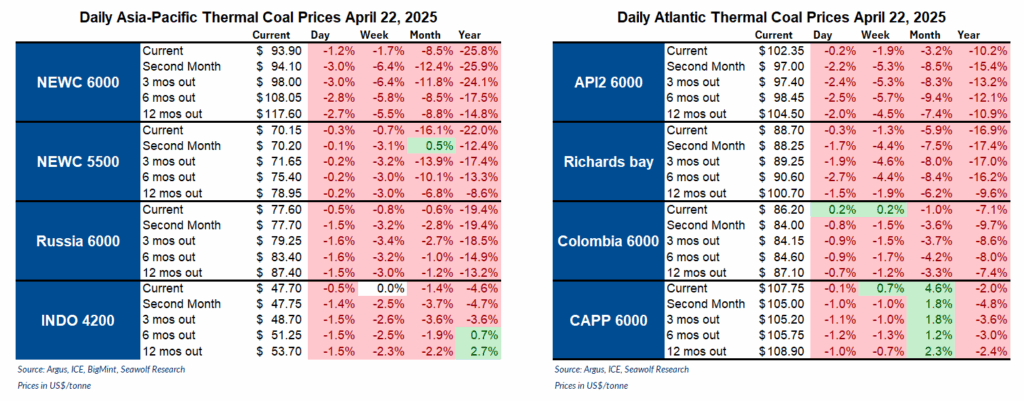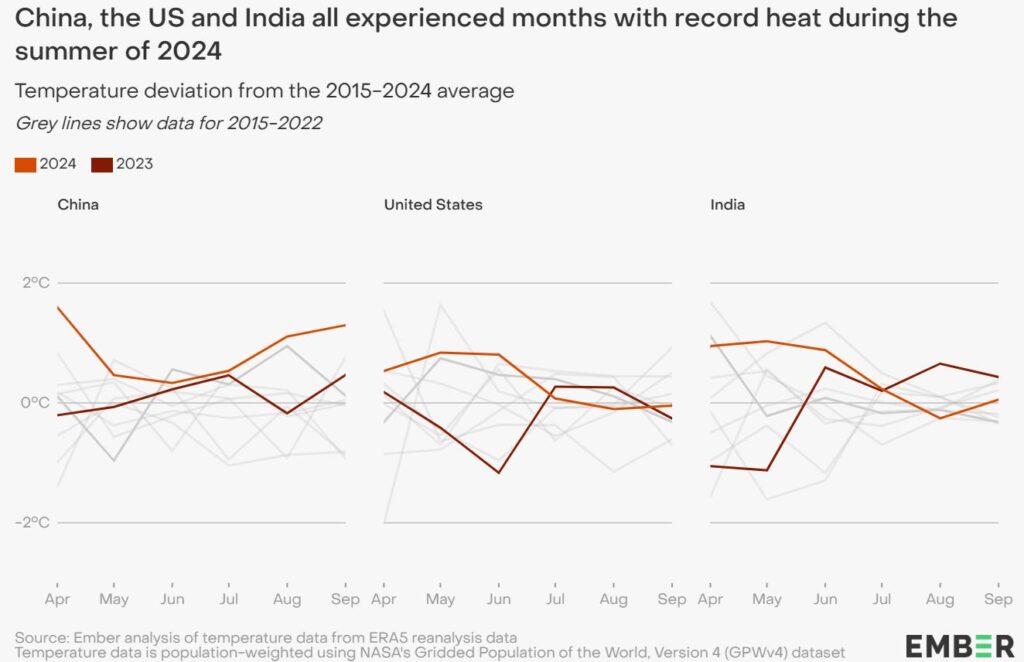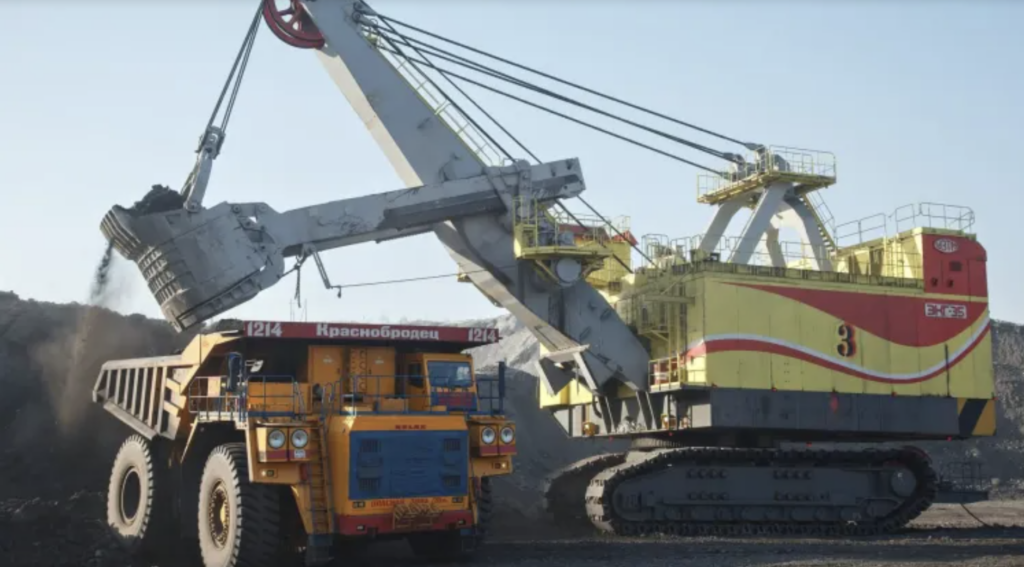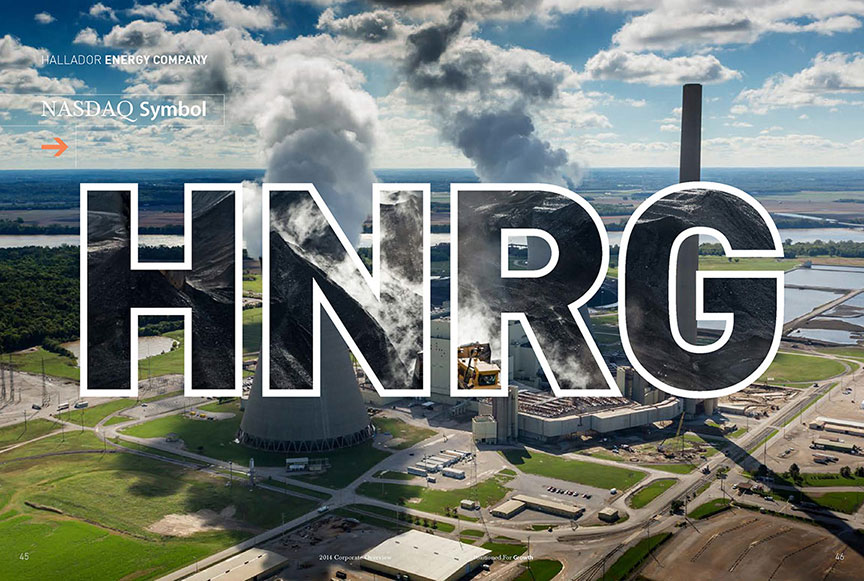The Pacific basin’s leading thermal coal index edged up to its highest level in six weeks this week, supported by fresh western sanctions on Russia that were likely to complicate its coal exports.
Global Coal’s Newcastle index rose USD 3.78 in the week through to Wednesday to settle at USD 125.60/t, the highest since 19 January. Newcastle coal remains around USD 25 higher than front-month delivery to northwestern Europe on the Ice Exchange. Expanded US and European sanctions on Russia announced last Friday were likely to curb exports by companies like SueK and Mechel to places like India, said LSEG coal analyst Toby Hassall in Singapore.
“Those parties still willing to import Russian coal may find it more difficult to do so in terms of shipping, financing, insurance, re-insurance – those parties involved are at risk of being sanctioned by the US government, if they are in US jurisdiction,” Hassall said.
“That suggests demand for coal from other origins – such as Australia – will increase, and I think that has had a supportive impact on prices of Newcastle coal.”
However, there are some headwinds such as relatively weak demand from Australia’s main customer, Japan, where improved nuclear generation and cheaper LNG were eroding the outlook for coal generation, Hassall added. Japan, South Korea and Taiwan were on track to see their imports of Australian thermal coal fall by roughly a third month on month to 7.2m tonnes in February, according to Kpler ship-tracking data. This was also 3.5m tonnes lower year on year.
Newcastle coal exports came in flat on the week last week at 2.9m tonnes, according to Kpler.
Costs creep up
Production among Australian miners was continuing to improve with favourable weather conditions, Hassall said, pointing to recent financial reports in the industry. Yet improvements in supply in some places needed to be offset against a growing loss of expensive suppliers unable to cope with a 32% fall in benchmark prices over the past year.
“The market has already entered a state of oversupply, evidenced by the fact that some producers are now operating with negative cash margins,” Hassall said.
He highlighted South African supply that needed to be trucked to export terminals as a source of supply that was likely to be squeezed out of the market at present prices.
“The escalation of costs – uneconomic supply being withdrawn from the market – will be a supportive element,” he added.
By: Nathan Witkop

